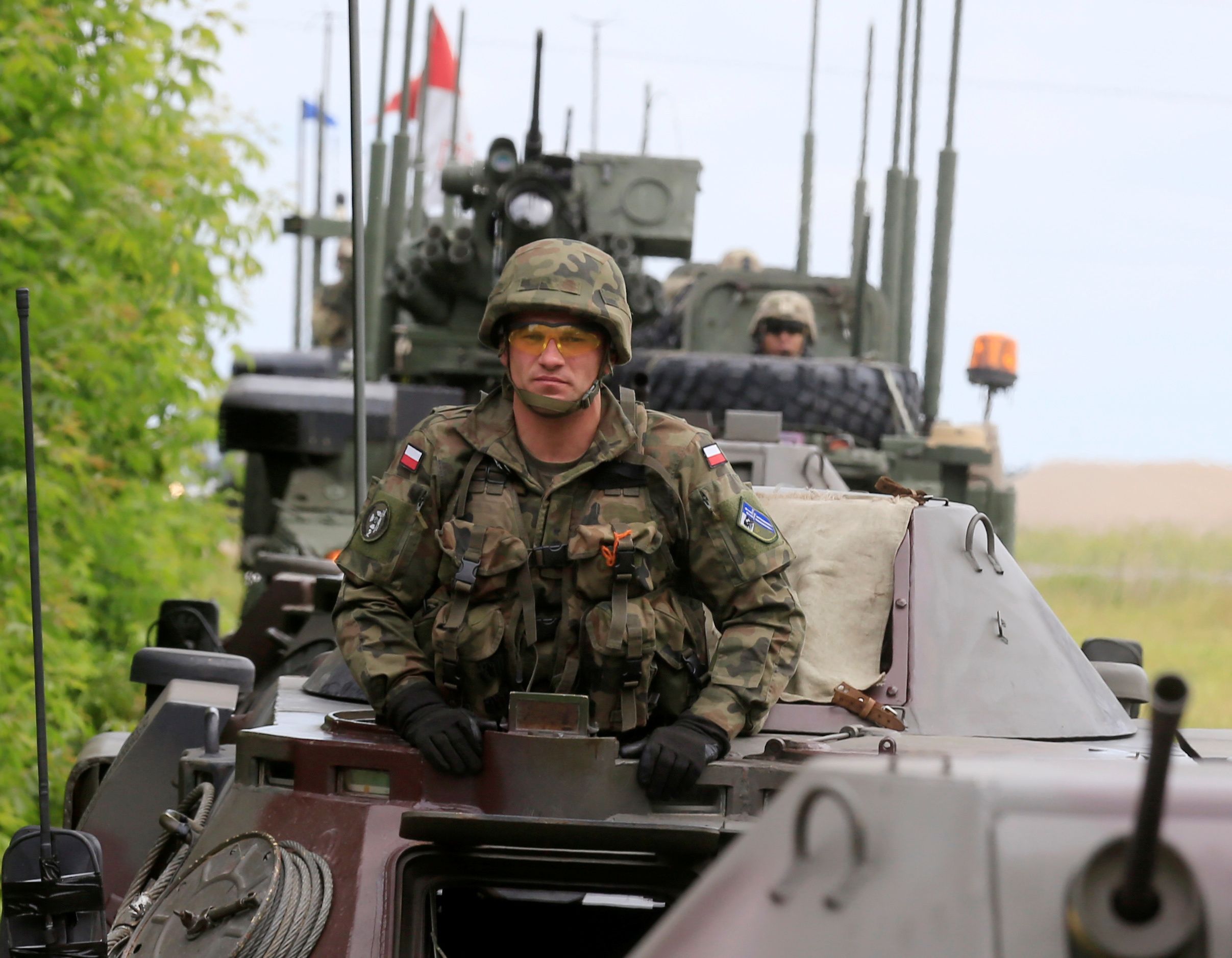
Poland's army will increase the size of its army and introduce a 50,000-strong volunteer militia as fears grow of a military resurgence in neighboring Russia under Vladimir Putin.
Ever since Moscow annexed Crimea from Ukraine in 2014 and backed an insurgency in the east of the country, Russia's neighbors have viewed its military expansion warily.
Polish President Andrzej Duda signed off a bill that will increase defense spending and up the size of the army by 50,000 from the current 100,000. The bill will also introduce a new volunteer defense force, numbering around 50,000, Polish state broadcaster Polskie Radio reported on Monday.
The bill, which is a rare piece of legislation to enjoy cross-party support in Poland, envisions a defense budget increase of up to 2.5 percent of Poland's GDP by 2030. Most NATO members are yet to uphold the pledge to increase defense spending by at least two percent of their respective GDPs. Of 28 allies, only the U.S., U.K., Greece, Poland and Estonia currently fulfill the pledge.
"The Polish army will within ten years gain the capability of stopping every opponent," Defence Minister Antoni Macierewicz said over the weekend, referring to the bill's provisions.
Poland is one of only five NATO allies to border Russia, including all three Baltic states, Lithuania, Latvia and Estonia. NATO's ongoing reinforcement in the east has leaned heavily towards allaying the concerns of Poland and the Baltics, each of which will now host a multinational NATO battalion on their territory.
Russia has consistently argued that NATO's expansion into the former Soviet sphere of influence is an aggressive lurch for its territory, as opposed to providing defense for small European states who would be susceptible to coercion from Moscow otherwise.
Russian Foreign Minister Sergei Lavrov has pledged that his country would never attack a NATO ally and risk war. However, trust in Russian foreign policy statements among Western governments is at a post-Cold War low.
The Kremlin has made a series of spurious claims about the nature of its campaign in Syria, where it has denied all reports of causing collateral damage and bombing civilians. Russia's official policy is to deny any military backing for insurgents in east Ukraine, who have themselves claimed to have thousands of Russian troops in their ranks.
Uncommon Knowledge
Newsweek is committed to challenging conventional wisdom and finding connections in the search for common ground.
Newsweek is committed to challenging conventional wisdom and finding connections in the search for common ground.
About the writer
I am a Staff Writer for Newsweek's international desk. I report on current events in Russia, the former Soviet Union ... Read more
To read how Newsweek uses AI as a newsroom tool, Click here.








